If you live in a community that has a Homeowners Association (HOA), chances are that you have seen or heard the phrase “Reserve Study” during board meetings. Perhaps you’ve seen the term in your HOA’s annual budget report. Maybe your neighborhood has recently levied a Special Assessment to fund its reserves, and you want to have a greater understanding as to whether the assessment is legal, necessary, and/or reasonable. The following post will give you a stronger grasp of what a Reserve Study is, its requirements, how reserves are funded, and why these studies are an integral part of an HOA’s budgetary process.
What is a Reserve Study?
Reserve Studies are budgetary tools designed to assist Homeowners Associations (HOAs) in their financial planning for any/all anticipated large-scale expenditures. Think of them as maps that help guide your HOA board in making sure that its long-term fiduciary responsibilities (with respect to member/tenant safety and maintaining the overall value of your property) remain on track.
Does my community require a Reserve Study?
The answer to this question depends on what your community’s Covenants, Conditions, and Restrictions (CC&Rs) are obligated to “repair, replace, restore or maintain (Common Interest Development).” (California Civil Code §5550)
“…if the current replacement value of the major components is equal to or greater than one-half of the gross budget of the association, excluding the association’s reserve account for that period… The board shall review this study, or cause it to be reviewed, annually and shall consider and implement necessary adjustments to the board’s analysis of the reserve account requirements as a result of that review.” (California Civil Code §5550)
How often does my HOA require a Reserve Study?
In the state of California, most HOAs are required to conduct an on-site Reserve Study at least once every three years. Off-site reserve studies should be conducted annually.
“(a) At least once every three years, the board shall cause to be conducted a reasonably competent and diligent visual inspection of the accessible areas of the major components that the association is obligated to repair, replace, restore, or maintain as part of a study of the reserve account requirements of the common interest development, if the current replacement value of the major components is equal to or greater than one-half of the gross budget of the association, excluding the association’s reserve account for that period. The board shall review this study, or cause it to be reviewed, annually and shall consider and implement necessary adjustments to the board’s analysis of the reserve account requirements as a result of that review.” (California Civil Code §5550)
Do HOAs have to disclose the findings of a Reserve Study?
Yes. California Civil Code §5300 stipulates that HOAs are required to provide “a summary of the association’s reserves…” and “a summary of the reserve funding plan adopted by the board…” and that this summary “shall include notice to members that the full reserve study plan is available (to any member) upon request…”
HOAs are required to distribute this information, along with its Annual Budget Disclosure, 30 to 90 days before the end of its fiscal year (which varies depending upon each HOA).
What kind of information do Reserve Studies provide?
In the state of California, Reserve Studies and annual budgets are required under California Civil Codes §5550 and §5300 to disclose certain information regarding Reserves. Below is a list of the standard information that most Reserve Studies and Annual Budgets (with respect to Reserve Studies) are required to disclose.
*Note: Your community’s governing documents (CC&Rs) may have more stringent standards with respect to what information must be included in its Reserve Studies and/or Annual Reports. It is advisable to refer to your specific governing documents in order to know precisely what information must be included.
- Reserve Studies must identify all of the major components (listed in each community’s CC&Rs) that they are obligated to repair, replace, restore, or maintain that have a useful life of fewer than 30 years.
- Reserve Studies must identify the probable remaining useful life of all identifiable components (as of the date of the study).
- Reserve Studies must estimate the cost of repair, replacement, restoration, or maintenance of all identifiable components.
- Reserve Studies must estimate the total annual contribution necessary to defray the cost to repair, replace, restore, or maintain all identifiable components – during and at the end of their useful life (after subtracting the total reserve funds as of the date of the study).
- Reserve Studies must provide a summary of the Reserve Funding Plan that indicates how the association plans to fund the contribution(s) to meet the association’s obligation for the repair, replacement, restoration and/or maintenance of all major components with an expected remaining life of 30 years or fewer – not including those components that the board has determined will not be replaced, repaired, restored, maintained, etc., and a notice to members that the full Reserve Study Plan is available to all members (upon request).
- Annual Budgets must include a summary of the HOA’s reserves, prepared pursuant to California Civil Code §5565.
- Annual Budgets must include a statement as to the mechanism(s) by which the HOA board will fund the reserves – including assessments, borrowing, use of other assets, deferral of selected repairs, and/or alternative mechanisms.
- Reserve Studies must include a general statement addressing the procedure(s) used for the calculation and establishment of the reserves – which includes, but is not limited to, reserve calculations made using the formula described in paragraph (4) of subdivision (b) of California Civil Code §5570, and may not assume a rate of return on cash reserves in excess of 2% above the discount rate published by the Federal Reserve Bank of San Francisco at the time the calculation was made.
Are HOAs required to have a minimum amount of funding in their Reserves?

No. Currently, there is no statutory minimum requirement for any Reserve account to be funded.
Most experts agree that communities whose Reserves are funded between 0-30% are considered low because the cost of their calculated deterioration outpaces the growth and/or stability of their Reserve funds. Reserves are said to be in a strong position if they are funded 70% (or higher). The goal for any community should be to build their Reserves to 100% (or more).
Why should HOAs strive to build their Reserves more than 100%? It is important to note the effect that inflation has on Reserves and Reserve Interest. When conducting a Reserve Study (or hiring a company to conduct one on behalf of your HOA), it is vital to be mindful of how Inflation will affect the monies in your Reserves. That is to say, for the vast majority of HOAs, contributions to the Reserve (and Reserve Interest) do not offset Inflation. When creating a Reserve Study and setting a budget for the fiscal year, your HOA should consider the rate of Inflation and how it will likely affect the overall percentage your Reserves are funded.
Can monies from Reserve accounts be transferred into other accounts or used to fund the general operating budget?
Yes. California Civil Code §5515 authorizes HOA boards to temporarily transfer monies from their Reserves – so long as the board has provided Notice of Intent to consider the transfer in a board meeting. The board must provide notice of this meeting – including (a.) the time and place of the meeting, (b.) the reason(s) the transfer is needed, (c.) options for repayment of the Reserve funds, and (d.) whether a Special Assessment may be considered, at least four (4) days prior to the meeting. If the HOA’s CC&Rs require a longer period of notice, they must comply with the timeframe stated in their governing documents.
If/when the HOA board authorizes the transfer, the board must issue a written finding (recorded in the board’s minutes) that delineates the reason(s) that the transfer is needed and describing how the monies will be repaid back into the Reserve Fund.
It is important to remember that all monies transferred out of the Reserves must be returned into the Reserve Fund within one calendar year of the original date of transfer. If, for any reason, the HOA board is unable to restore all funds to the Reserve account by the one year deadline, the board may give written notice for the delay – including supporting evidence and documentation that demonstrates that the delay is in the best/common interest of the HOA.
If the board deems it necessary, it is authorized to levy a Special Assessment to recover the full amount transferred (Reserve) funds within the one year time limit. The board may extend the date to which the payment on the Special Assessment is due. The board is also within its rights to pursue any legal remedy/recourse to enforce collection of an unpaid Special Assessment.
*This Special Assessment is subject to the limitations imposed by California Civil Code §5605.
Fun Fact: Reserves and Reserve Studies required for FHA and VA backed mortgages
If an HOA is not adequately funded, then that community may not have the ability to perform its fiduciary responsibility to protect, maintain and enhance the value of the property. In other words, the federal government wants to be sure that they are making safe investments on properties. If properties aren’t adequately funded, then their investment is at a greater risk. Therefore, HOA communities must fund their reserves and regularly conduct Reserve Studies in order for prospective homeowners to qualify for FHA and VA backed mortgages.
Where can I find a professionally certified analyst to assist my HOA with the creation of a Reserve Study?
The Association of Professional Reserve Analysts (APRA) has a member directory.
If your association requires assistance navigating issues related to Reserve Studies – or any other concerns, you should consider the benefits of contracting a professional HOA management company like Association Management Concepts, Inc. (AMC).
___________
If you have any questions – or would like us to confidentially review your documents to see if your community is on the right track, contact us at (916) 565-8080 (ext. 324) or visit our website: www.assocmc.com.





